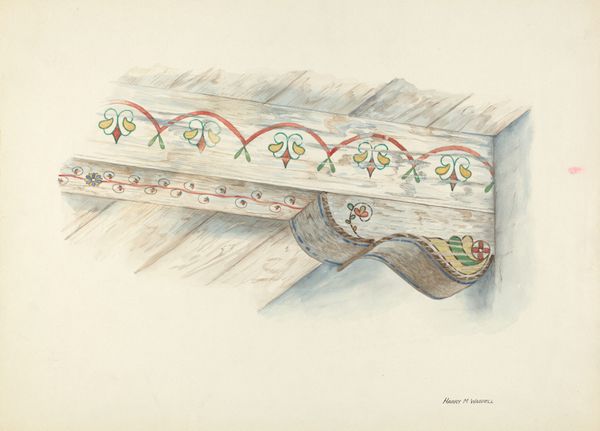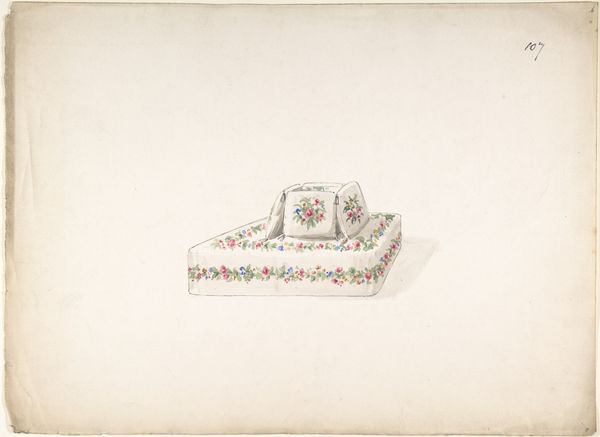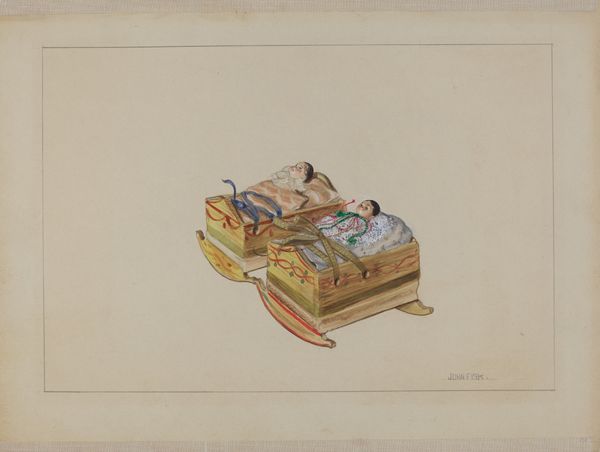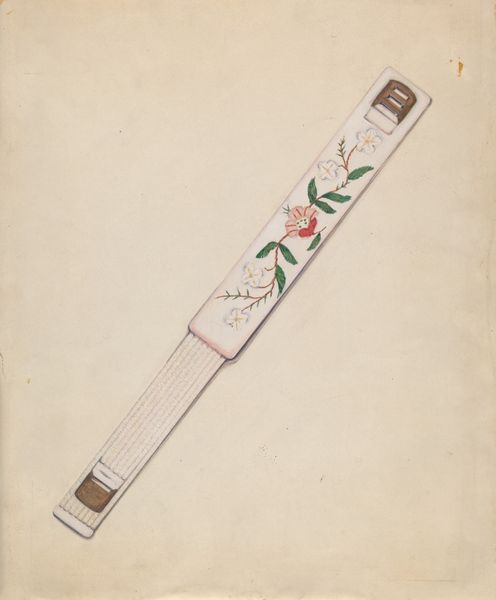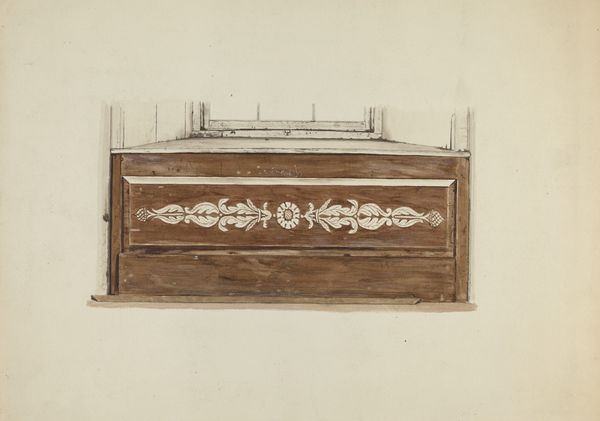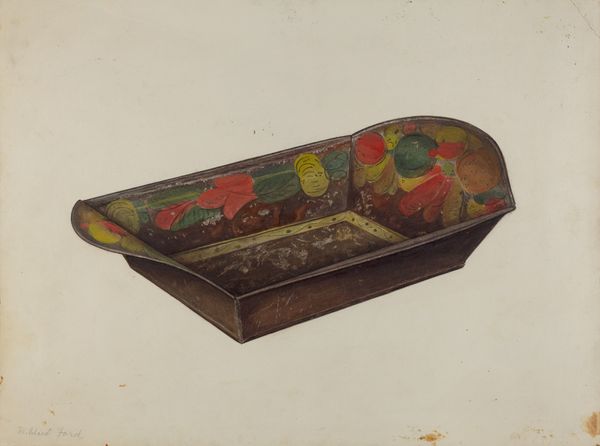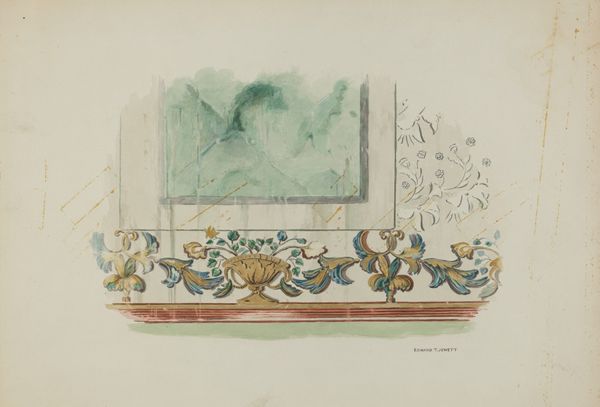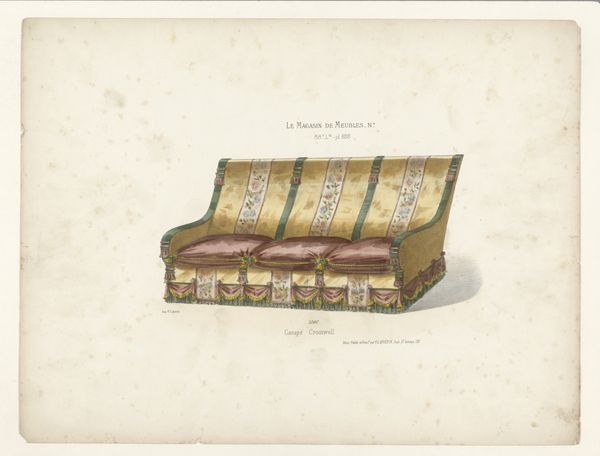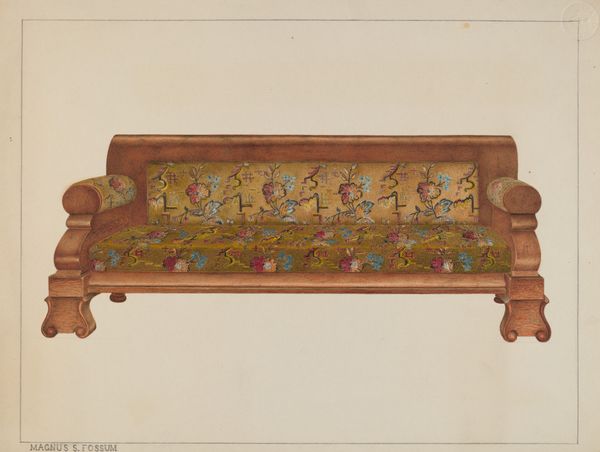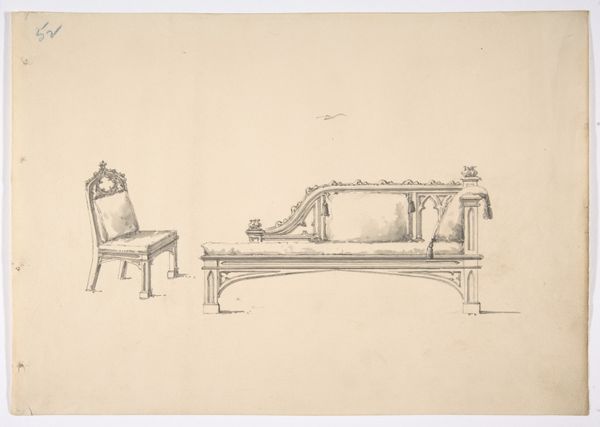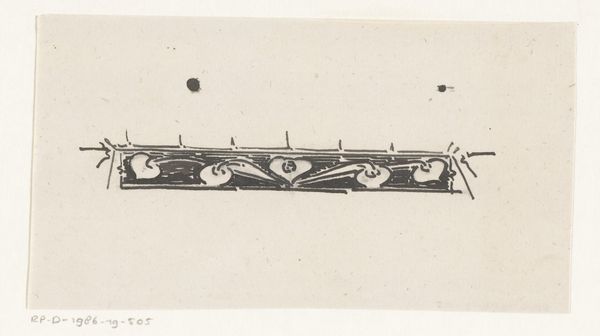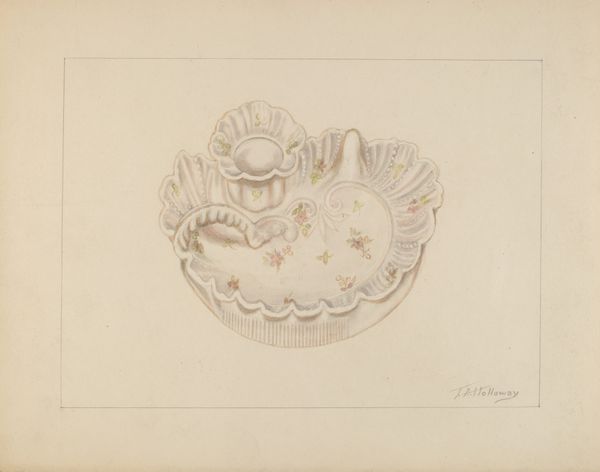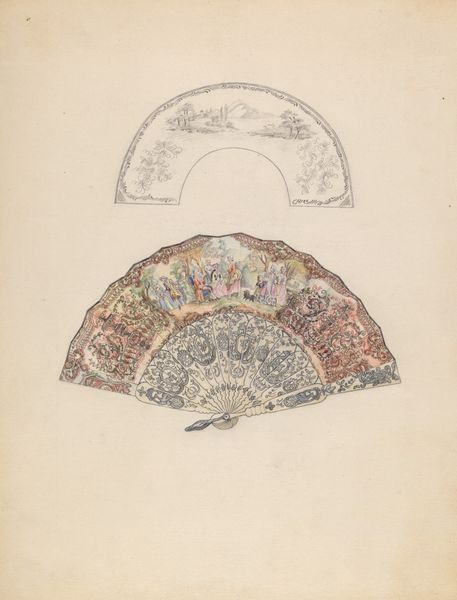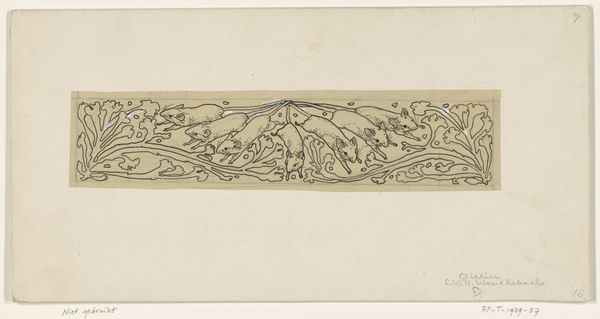
drawing
#
drawing
#
aged paper
#
toned paper
#
light pencil work
#
pencil sketch
#
personal sketchbook
#
coloured pencil
#
pencil work
#
watercolour illustration
#
watercolor
#
warm toned green
Dimensions: overall: 28 x 35.5 cm (11 x 14 in.) Original IAD Object: Projects 2'8" from wall. Beam 12"square.
Copyright: National Gallery of Art: CC0 1.0
Curator: Immediately, I see the quiet geometry and soft palette of Cornelius Christoffels’s 1940 drawing, "Corbel and Ceiling Beam." It presents a simple architectural element, sketched with an eye for delicate ornamentation. Editor: There's a certain melancholy, or perhaps wistful nostalgia, evoked by this warm toned green pencil sketch, right? It looks like a loving study of something easily overlooked. Curator: Well, consider the function of a corbel. It supports weight, offering structural stability. The ornamented painting then asks, is this artwork's intention purely aesthetic, or does it act as visual labor by attempting to create structural support through aesthetics? The very medium, drawing, implies careful consideration and skilled craft labor. Editor: Absolutely. And within that structure, we find an intimate narrative being told, don't we? Looking closely, the floral motifs, particularly the use of watercolour and colored pencil, seem almost folk-art inspired, placing value and representation on the traditionally marginalized: home craft and architecture as expressions of resistance or comfort in the everyday. It's an affirmation of personal expression against perhaps the more homogenized forms of architecture developing in the 40s. Curator: Right. What is being shown is actually as critical as how it is depicted. The sketchiness speaks to a provisional or even precarious materiality—emphasizing not permanence but its temporality. The materials imply a sense of transience or the study itself as an impermanent, and intimate thing. Editor: Precisely. What this artwork communicates for me goes far beyond its deceptively small format. As it uses watercolor illustration it challenges that idea of fine art and creates new historical meeting points and cultural dialogues between design and the politics of display in artistic canons. Curator: For me, looking at how labor is shown by what specific techniques are being highlighted and the artist's choice in a muted range of colours, makes me see the true focus of Christoffels—the value placed on the practice itself. Editor: Ultimately, isn't it thought-provoking to consider art as an expression of identity? It can use our expectations about architectural details like these corbels, asking bigger questions.
Comments
No comments
Be the first to comment and join the conversation on the ultimate creative platform.
